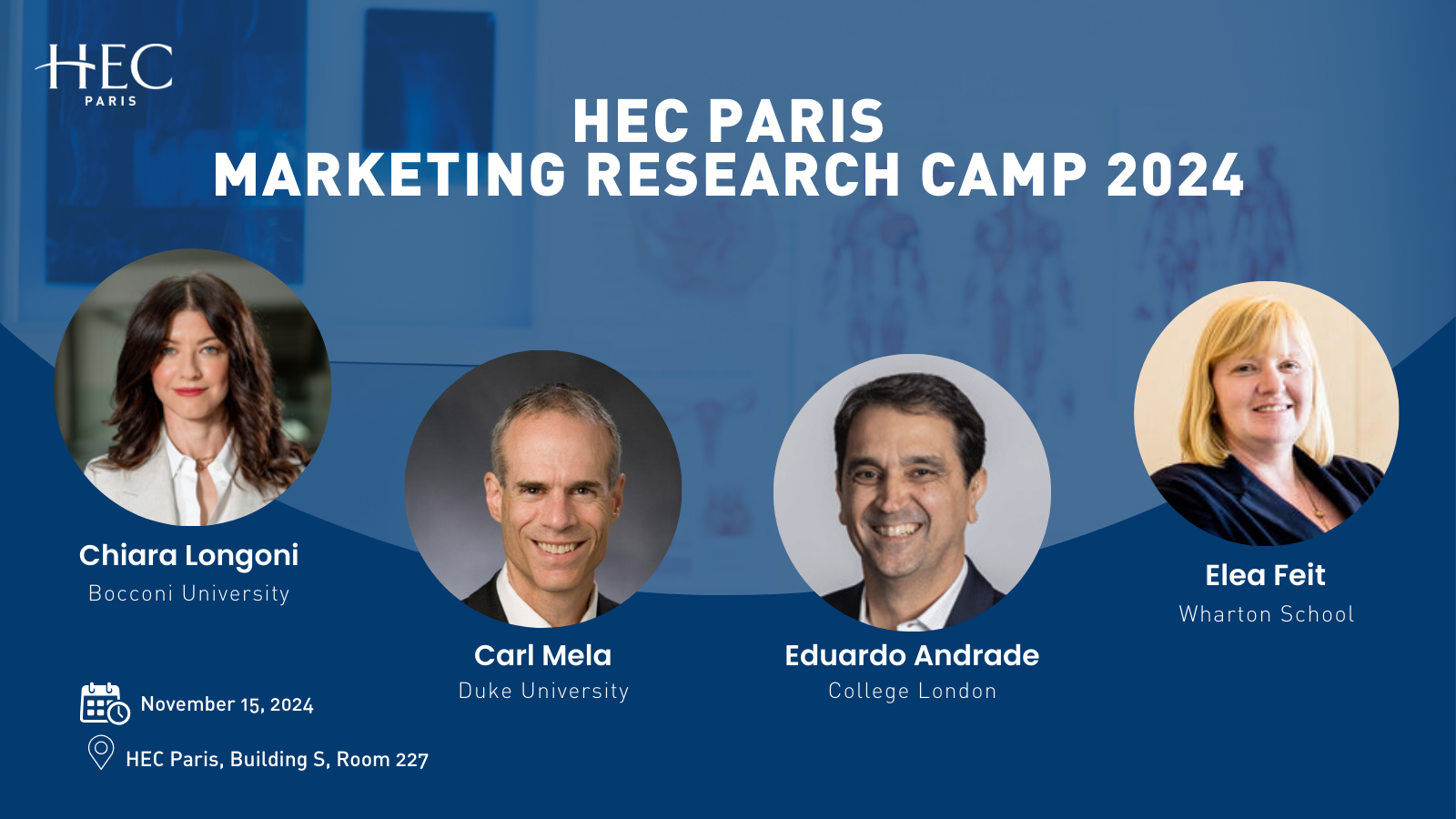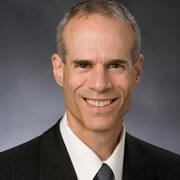HEC Paris Marketing Research Camp 2024
HEC Paris Marketing Research Camp 2024Participate
Organizers: Klaus MILLER and Anastasia BUYALSKAYA (Marketing Department)
Building S, Room 227
As technology, consumer behavior, and social dynamics rapidly evolve, businesses, policymakers, and researchers are increasingly called to understand complex landscapes in advertising, AI, activism, and brand management. This series of talks brings together cutting-edge research that spans diverse but interconnected fields, exploring how AI can drive social good, how advertisers optimize their strategies in dynamic markets, the role of public perception in climate activism, and the importance of brand equity in the effectiveness of retail media. Each presentation offers unique insights and empirical findings that highlight both the opportunities and challenges in driving positive impact through informed, strategic, and ethical decision-making across sectors.
9:30 Welcome coffee
10:00 Talk 1: Chiara Longoni: Associate Professor of Marketing at Bocconi University
AI for social good: A behavioral science perspective on opportunities and challenges for ethical AI
AI has the potential to deliver socially beneficial outcomes to individuals, communities, and society at large. As a general purpose technology, AI can be used to understand problems, seek solutions, and make decisions to reach results potentially superior to those achieved by other means. Realizing this potential, however, hinges on understanding how AI is transforming our lives so that we can steer development and deployment of AI in a direction that is preferable for our society and sustainable for our future. In this talk, I will present a series of empirical findings that illustrate, across several domains, the opportunities and challenges that confront AI for social good. In particular, I will discuss: the psychological barriers to adopting AI in healthcare, the consequences of automating news reporting for perceptions of news accuracy, the potential risks associated with premature deployment of AI for trust in public institutions, and whether generative AI may moralize violations. I will conclude with a brief discussion of areas relating to AI for social good that would benefit from further research and action.
11:00 Coffee break
11:30 Talk 2: Carl Mela: Professor of Business Administration at Duke University
We consider how an ad network's pooling of advertiser information remediates this problem. As ads with similar visual elements garner similar CTRs, the network's pooling of information enables advertisers to better predict ad performance at new sites. Counterfactual analyses indicate that gains from pooling advertiser information are substantial: over six months, we estimate a median advertiser welfare gain of $2,756 (a 15.5% increase) and a median publisher revenue gain of $9,618 (a 63.9% increase).
12:30 End of morning sessions
12:45 Lunch at Petit Gustave
14:30 Talk 3: Eduardo Andrade: Professor of Marketing at Imperial College London
The Role of Action Logic and Disruption on Public Responses to Climate Activism
15:30 Coffee break
16:00 Talk 4: Elea Feit: Assistant Professor of Marketing at The Wharton School
with Morgan Bale and Eric Bradlow
17:00 End of afternoon sessions
17:30 Cocktail and dinner at Le Château HEC




